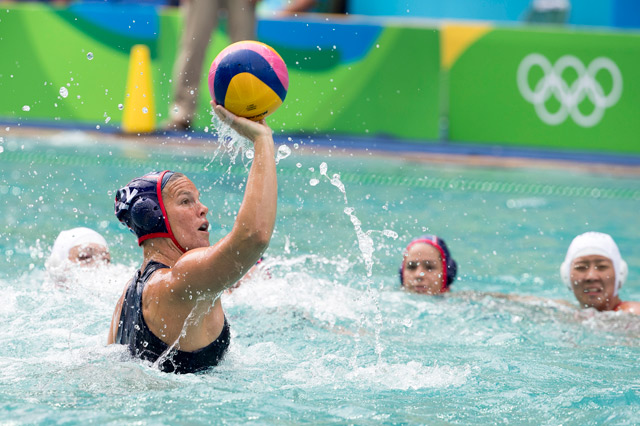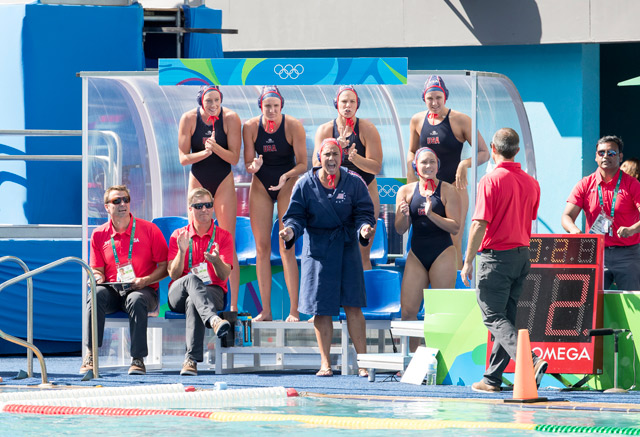A Rio Rundown
Pondering the Greatest Athletes, Santa Barbara’s Shining Stars, and More from the Summer Olympics

For an Olympic Games that was freighted with so many drawbacks, Rio 2016 emerged with a load of superlatives. It was so rich with exceptional performances that there were debates about who was the best of the best.
The Greatest Olympian Ever: Michael Phelps or Usain Bolt? I lean toward Bolt, because all of humankind lives and moves on land masses, and he is the fastest ever to set his foot on the ground. He proved it nine times without fail in three Olympics, all the while entertaining us in Muhammad Ali–like fashion. Every time Bolt accelerated away from the rest of the best, it took your breath away. Phelps collected more gold than King Solomon, but comparatively few countries breed swimmers, and all the different strokes and relays presented him the opportunities to collect a staggering 28 Olympic medals. I’ve heard the butterfly compared to the hurdles — something Bolt has never run — but the Jamaican jet still has my vote.
What about the “World’s Greatest Athlete,” the title bestowed on the winner of the Olympic decathlon? Ashton Eaton moved to the forefront of past greats Bob Mathias and Daley Thompson, the only others to win back-to-back gold medals. Eaton’s accomplishments are underappreciated because the decathlon is a drawn-out accumulation of runs, jumps, vaults, and throws. NBC’s Rowdy Gaines made each Phelps race sound like the Second Coming. Trying to explain the scoring of the decathlon, the track announcers were all facts and no fever.
Contending for the Greatest Olympic Team are three dominant assemblages of American women: the “Final Five” of gymnastics, the basketball team that won its sixth consecutive gold medal, and the first water polo team to win a repeat title. I’ll take the latter two on the basis of teamwork, as gymnastics routines are done individually even in the team competition.
The final triumphs of the women’s basketball team (101-72 over Spain) and water polo (12-5 over Italy) were similarly conclusive. Basketball is a more competitive sport worldwide, but any Santa Barbara sports fan has to celebrate the water polo team above all. Our schools, clubs, and coaches produced three of the 13 players on the U.S. roster.
All three performed exceptionally well in the gold-medal match. Kami Craig, a Santa Barbara High grad who has now won three medals (silver and two golds) with the U.S. team, scored an early goal from the center position and set up several others — including a penalty shot — by letting Italians beat on her. The more abuse she took, the more the 29-year-old Craig smiled. Kiley Neushul, at 23 the youngest of the trio, scored a game-high three goals on just four attempts. Her first came after a long outlet pass from goalkeeper Ashleigh Johnson; Neushul sped the length of the pool and stuck in a shot that gave the U.S. the lead for good, 2-1. In the final quarter, Sami Hill, a former teammate of Neushul’s at Dos Pueblos High, replaced Johnson and stopped a point-blank shot by Italy, which prompted Johnson — the tournament’s outstanding goalie — to pump her fist on the deck.

They were an exquisitely harmonious team, but more diverse than one might expect. “I am so honored to represent my country, and even more proud to represent my Samoan heritage,” posted Hill, who is Polynesian on her father’s side. Johnson, meanwhile, proved that swimming champion Simone Manuel is not the only African-American who can get it done in the pool.
The six Olympic victories extended the water polo team’s win streak to 22 games. The only thing broken was the heart of their coach, Adam Krikorian. After the team arrived in Rio, he learned that his brother Blake died suddenly in California. He went home to be with his family, returning in time for the start of the Olympic tournament. After receiving their gold medals, all 13 women hugged Krikorian and draped their medals around his neck.
BRONZE IS BEAUTIFUL: The Rio Games were semi-tough on U.S. volleyball teams. Three of them — both men’s and women’s indoor teams, and the beach volleyball tandem of Kerri Walsh Jennings and April Ross — lost excruciating semifinal matches. Walsh Jennings suffered her only setback in 28 matches spanning four Olympics. Karch Kiraly, head coach of the U.S. women’s indoor team, also was unaccustomed to losing in the Games, having won three golds as a player.
NBC commentator Kevin Barnett described Kiraly, a perfectionist on the court since his Santa Barbara High days, as “a volley nerd … a volley dork … and he embraces those terms.” During a time-out early in the Olympic tournament, Kiraly got goose bumps as he exhorted his team, and when he recounted the episode after the match, he got goose bumps again.
Serbia shattered the U.S. women’s pursuit of gold with a late run in the semifinals. But rather than wallowing in disappointment, Kiraly got them fired up again for the third-place match against the Netherlands. They went out with a win and a bronze medal, as did the U.S. men’s team and Walsh Jennings/Ross.
108-YEAR WAIT: Because of a sluggish tactical pace, Matt Centrowitz’s winning time of 3:50.0 in the men’s 1,500-meter run at Rio was the slowest since 1932. UCSB’s Shyan Vaziri ran 3:49.76 in this year’s Big West Championships. But Centrowitz, who blazed the last lap in 50 seconds, is the first American to win the Olympic 1,500 since Mel Sheppard in 1908. Maybe this will be the Chicago Cubs’ year.



